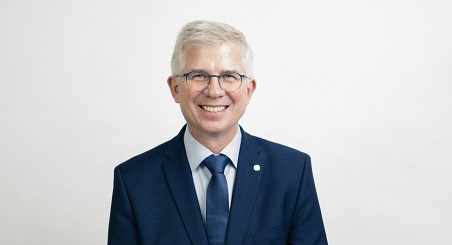In December 2021, the World Health Assembly (WHA) formally established the Intergovernmental Negotiating Body (INB). The WHA agreed to bring pandemic management to the next level by developing a legally binding international tool: The International Pandemic Accord.
2022 was a fruitful year shaping the structure and the principles of this accord. Three official meetings of the INB were held, where member states expressed their opinions, red lines, and organizational alignments. All stakeholders could contribute with their opinions on key elements of the accord during two public consultation hearings. Finally, four consultations focused on specific subject matters such as AMR (antimicrobial resistance). However, no methods have been defined or established, how these expert opinions should be addressed by the INB.
The timeline for 2023 seems to be even busier with negotiations on the content and on the most sensitive elements of the accord. Many questions will have to be answered to make it effective and useful, including: How do we ensure equity around the globe? How can each country contribute to better prevention, preparedness, and response? Which level of legal commitment the accord will try to imply?
During 2023, each member state will finalize its position and select its priorities. In this phase, it is noteworthy to ensure that all voices are heard, and a fair balance of representation is established. The Conceptual Zero draft of the accord stipulates that the involvement of various stakeholders will clearly depend on national authorities. However, no guidelines or recommendations to support this engagement process have been issued so far. The key task for national authorities is to guarantee that the variety of actors, experiences, and expertise are considered.
Civil society, national parliaments, academy institutions, and representatives of health workforce often need to fight for their access on information of negotiations and enhancing changes to shape the future of pandemic preparedness. For this reason, the lack of understanding about the importance of the accord in our societies sets the grounds for criticism, misinterpretation, and reservation of this important initiative. There is an urgency to inform citizens around the globe on the implications of the future accord. It remains a major pillar to have a framework for the management of health crises and to how to explain the accord could reduce the risk or even protect against the challenges of a pandemic.
Elected representatives have a privileged bond to communities in their constituencies, which can facilitate the work of education and communication by the national governments or the INB. They need to be engaged as partners in the process to gain support not only from global leaders but also from national politicians. This provides ownership. Civil society has trusted relationships with citizens’ groups and can raise the needs coming directly from their field. In addition, often such organisations as well as the health workforce are frontliners during a pandemic response. They should be regularly consulted including the preparatory phase. Finally, academy and researchers add a necessary layer of expertise, ensuring evidence-based concepts. The private sector also plays a critical role and should be involved.
It is of utmost importance that the accord is not imposed, but built from the people, for the people
It is of utmost importance that the accord is not imposed, but built from the people, for the people. More spaces for inclusive discussions at national and international level should be initiated. Citizens need to be part of the process to establish trust in the future accord, its governance bodies, and to strive for more accountability. National parliaments, their committees on health, social affairs, development or foreign affairs could be this intermediate space for different opinions to gather and be communicated to government representatives and INB.
The negotiation process should be advanced to ensure transparency, inclusiveness, and accountability. Many more communication channels should be utilized, in the form of multistakeholder forums, networks, or roundtable discussions. Ultimately, they should develop into regular and structured dialogues on the accord and its future.
Our common New Year wish for 2023: Let’s make every voice in the development of the future International Pandemic Accord count, and bring people closer together.
Dr Andrew Ullmann is a physician by training, full professor of Infectious Diseases, Member of the German Bundestag and chair of the sub-committee on Global Health
Indre Karciauskaite is Europe Policy Director at AHF Europe

This article was paid for by AIDS Healthcare Foundation.
Sign up to The Parliament's weekly newsletter
Every Friday our editorial team goes behind the headlines to offer insight and analysis on the key stories driving the EU agenda. Subscribe for free here.